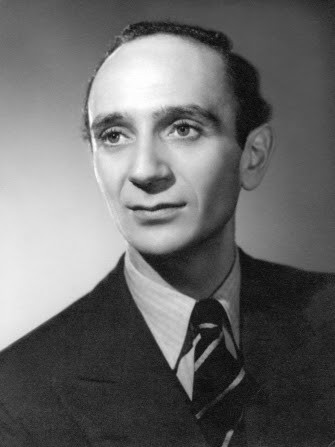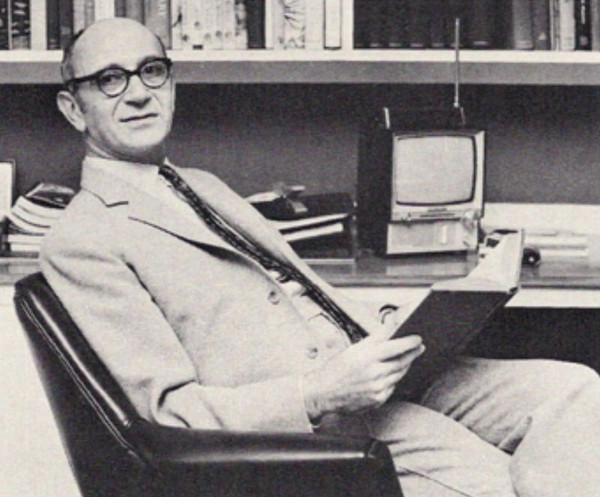Paul Dehn
Настоящее имя: Paul Dehn
Об исполнителе:
Paul Dehn (5 November 1912, Chorlton-Cum-Hardy, Manchester — 30 September 1976, Chelsea, London) was a prolific British screenwriter and librettist, uncle of the actress Kika Markham (b. 1940) and writer Jehane Markham (b. 1949). He is renowned as the lead writer of the original Planet of the Apes film franchise; according to David Kipen's Virginia Quarterly Review 1989 profile, he revitalized and reimagined such diverse genres as the British mystery, Shakespearian adaptations, and spy films. Dehn received his education at Shrewsbury School and the University of Oxford's Brasenose College. In 1936, Paul began working as a film critic for London's News Chronicle. He had a peculiar military career during the Second World War, serving in the secretive Special Operations Executive (SOE) and stationed at the notorious "Camp X" in Ontario, one of dozens of clandestine British paramilitary camps abroad that trained spies and Special Op forces. After WWII, Paul resumed his film critic career and continued writing for News Chronicle until its closure in 1960; Dehn further worked at the Daily Herald, quitting in 1963 to focus on full-time screenwriting. Around 1949, Paul Dehn established his life-long personal relationship and collaboration with film composer and writer James Bernard (1925—2001). They co-wrote an amateur thriller/drama screenplay, Seven Days to Noon, and pitched it to The Boulting Brothers in 1950. Co-directed and co-produced by John and Roy Boulting, the movie succeeded at the UK's box office and became a critical breakthrough for Dehn and Bernard, who shared the Oscar for "Best Motion Picture Story Writing" in 1952. Paul soon began writing for operettas and musicals, contributing lyrics for the 1952 Moulin Rouge historical romantic drama based on the eponymous Pierre La Mure's novel, directed by John Huston and produced by John and James Woolf. With an "all-star" cast of José Ferrer, Zsa Zsa Gabor, Suzanne Flon, Christopher Lee, Peter Cushing, Theodore Bikel, and mezzo-soprano Muriel Smith, the musical film won the Silver Lion at the 14th Venice International Film Festival. It was an overwhelming commercial success, grossing over £200,000 in the UK and $9 million in North America (or £4,780,000 and $104+ million in today's currencies). Paul also wrote a libretto for A Dinner Engagement opera by Lennox Berkeley in 1954. Throughout the 1960s, Dehn began working on spy films, winning the "Best British Screenplay" BAFTA Film Award for Anthony Asquith's 1958 Orders to Kill, a WWII drama based on a story by a former American spy, Donald C. Downes. Paul co-wrote Guy Hamilton's Goldfinger (1964), the third installment in the James Bond franchise featuring Sean Connery. In 1967, he earned the "Best British Screenplay" BAFTA nomination for The Deadly Affair script, based on the debut novel by former spy John Le Carré and directed by Sidney Lumet. Concurrently, Dehn continued writing lyrics and authored the libretto in 1963, a new adaptation of John Vanbrugh's XVII-century comedy. In 1967, Paul Dehn wrote librettos for Lennox Berkeley's Castaway and Sir William Walton's The Bear operas. In 1970, he authored the screenplay for Beneath the Planet of the Apes, the second installment in the original "Planet of the Apes" franchise; producers Arthur P. Jacobs and Mort Abrahams began working on serializing the blockbuster in late 1968, less than two months after Franklin J. Schaffner's eponymous movie came out. Paul Dehn worked on two more sequels, Escape from the Planet of the Apes (1971) and Conquest of the Planet of the Apes (72), notoriously responsible for heavily focusing on racial conflict theme; Dehn drew explicit parallels between apes and African-Americans, modeling several crucial scenes after Watts riots in Los Angeles and other real-life episodes of the Civil Rights Movement. His last script for Sidney Lumet's Murder on the Orient Express in 1974, based on the eponymous Agatha Christie "whodunit" bestseller, earned Paul Dehn an Oscar nomination for the "Best Adapted Screenplay Writing."



